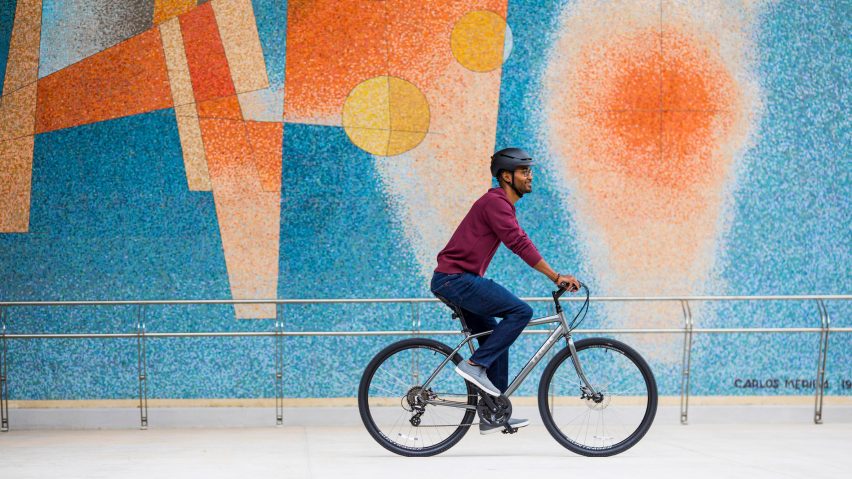US bike brand Bontrager has launched an improved bicycle helmet that they say is 48 times more likely to prevent concussion than standard foam versions.
The helmets contain a shock-absorbing material called WaveCel that Trek – Bontrager's parent company – claims makes them "the most advanced helmet technology ever designed".
WaveCel has a matrix structure with flexible individual cells that absorb the force of impact and redirect it away from the head.
First, the cells bend to absorb some of the frictional force, then they crumple like a car bumper and glide to disperse the energy from an impact.
Trek says that this makes it more likely than traditional helmets to protect a rider from injury.
Classic foam-based helmets are famously ineffective at preventing concussion. They are built to withstand the direct force that could fatally damage the skull, but do not typically prevent the brain from being jostled around in a concussion.
WaveCel is designed to lessen just this kind of impact. Trek points out that riders typically fall with rotational momentum and impact at odd angles, increasing the prevalence of this kind of injury.
The company says that in its testing, WaveCel prevented concussions 99 times out of 100. That is 48 times more often than the norm.
"WaveCel is the most advanced helmet technology ever designed, and these helmets are a big step toward making cycling a safer, more enjoyable experience for everyone," said Trek president John Burke.
However, the company behind a rival technology, Multi-directional Impact Protection System (MIPS), has challenged Trek's assertions, saying it was unable to replicate the results in its own testing.
MIPS is incorporated into bike helmets from several manufacturers, and also targets rotational forces.
Trek is releasing the Bontrager WaveCel helmet in four designs: two aerodynamic models for road biking, plus a mountain biking version, the Blaze, and a more minimal commuter style, the Charge.
It made the helmets in partnership with orthopaedic surgeon Steve Madey and biomechanical engineer Michael Bottlang, the inventors of WaveCel and longtime collaborators in head-injury prevention.
"WaveCel represents a significant leap forward for all types of riders, and we are proud
that this technology is exclusively available in Bontrager helmets," said Trek engineer Tony White.
Trek is one of the world's biggest manufacturers of bicycles, parts and accessories. It acquired Bontrager in 1995 and continues to make products under the Bontrager brand.
Among other recent helmet innovations are Closca's collapsible style, the Lumos with integrated indicator lights and a folding paper design that could be dispensed at bike hire stations.

